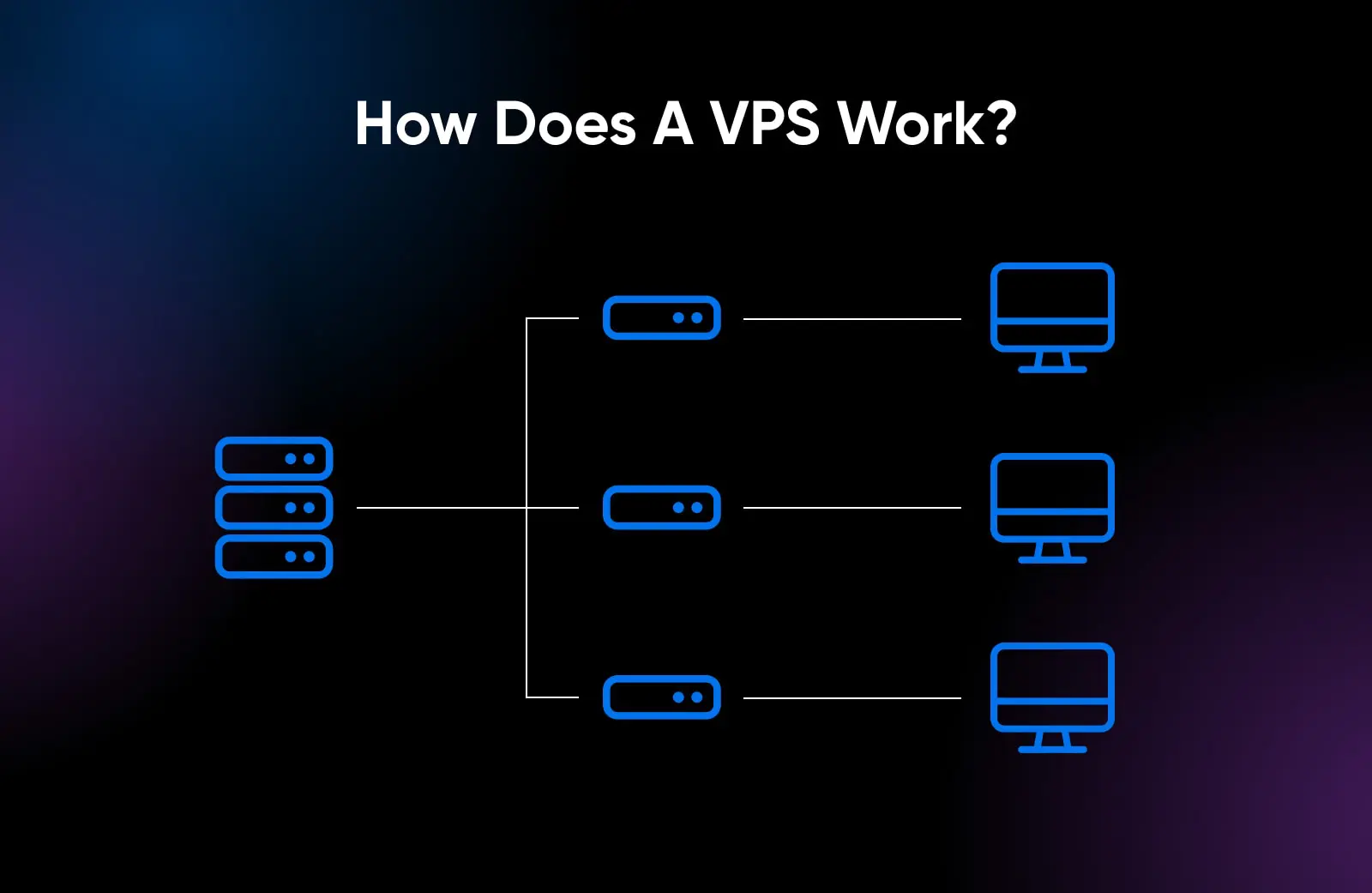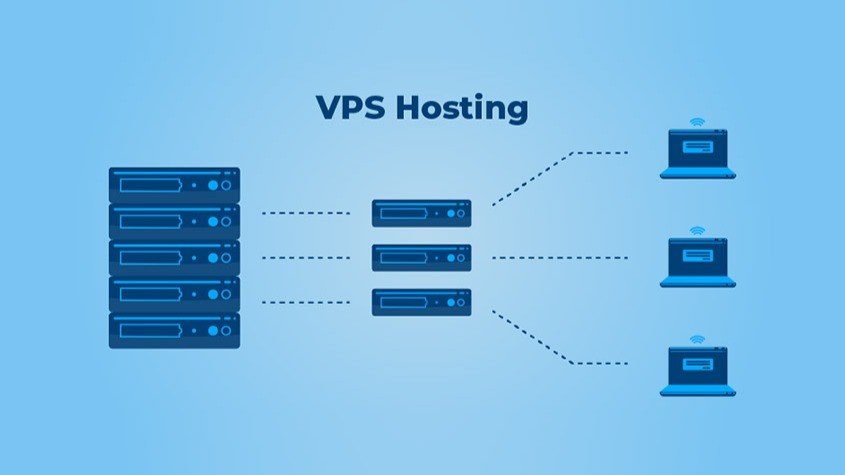Understanding VPS Hosting and When to Use It
When it comes to web hosting, many businesses and individuals face a decision between shared hosting, dedicated hosting, and VPS hosting. Virtual Private Server (VPS) hosting stands as a powerful solution that offers a balance of performance, control, and cost-effectiveness. Whether you are running a growing business, a medium-sized website, or need more flexibility than shared hosting offers, VPS hosting might be the ideal choice.
In this guide, we’ll break down what VPS hosting is, its advantages, and when it makes sense to choose it for your website or application.
What is VPS Hosting?
VPS hosting is a type of hosting where your website or application is hosted on a virtualized server. Essentially, a single physical server is divided into multiple virtual servers using virtualization technology. Each VPS functions as an independent server, with its own dedicated resources, such as CPU, RAM, and disk space.
Unlike shared hosting, where multiple websites share the same server resources, a VPS ensures that your resources are separate and exclusive to your account. However, unlike dedicated hosting, where you get an entire physical server to yourself, VPS hosting is more affordable and offers greater flexibility.
Key Features of VPS Hosting
Here are some of the key features that set VPS hosting apart:
1. Dedicated Resources
Each VPS has dedicated resources, meaning that your website or application won’t be affected by the activities of other sites hosted on the same server. You get guaranteed CPU power, RAM, and storage for your exclusive use.
2. Customizability
VPS hosting provides more control than shared hosting. You can install custom software, configure the server to meet your specific needs, and even choose your operating system (Linux or Windows).
3. Improved Performance
With dedicated resources and less competition from other websites, VPS hosting generally offers faster loading times and better performance compared to shared hosting.
4. Increased Security
VPS hosting provides enhanced security by isolating each user on its own virtual server. Unlike shared hosting, where your website shares resources with others, VPS reduces the risk of security vulnerabilities caused by other websites on the same server.

5. Scalability
VPS hosting is easily scalable. As your website grows, you can upgrade your server’s resources (RAM, CPU, storage) without needing to migrate to another hosting plan. This makes VPS hosting a flexible choice for growing businesses.
Benefits of VPS Hosting
1. Greater Control
With VPS hosting, you have more control over your hosting environment compared to shared hosting. You can install and configure software, control firewall settings, and customize server configurations.
2. Cost-Effective
While VPS hosting is more expensive than shared hosting, it’s still much more affordable than dedicated hosting. You get dedicated resources at a lower cost than renting an entire physical server.
3. Better Performance and Stability
VPS hosting offers better performance than shared hosting since the resources are not shared with other websites. This translates to faster load times, better handling of high traffic volumes, and greater stability.
4. Enhanced Security
Since you’re not sharing your resources with other users, VPS hosting provides a more secure environment. You have more control over security measures, like firewalls and software updates, to protect your site and data.
When to Use VPS Hosting
VPS hosting is ideal for businesses, websites, or applications that require more control, better performance, and scalability than shared hosting can provide. Here are some scenarios where VPS hosting is the right choice:
1. Growing Traffic
If your website is growing in terms of traffic and performance demands, shared hosting may no longer be sufficient. VPS hosting allows your website to handle higher traffic without compromising on speed or uptime. It also gives you the option to scale up as traffic continues to grow.
2. Running Resource-Intensive Applications
If you’re running applications that require substantial resources, such as databases, CMS platforms, or e-commerce stores, VPS hosting provides the dedicated resources necessary for smooth performance.
3. More Control Over Server Configuration
If you need to install custom software or have specific configurations for your website, VPS hosting offers the flexibility and control that shared hosting cannot provide. Whether you need specific security settings or want to configure a unique server environment, VPS hosting allows you to customize it according to your needs.
4. Improved Security Needs
If you’re handling sensitive data or are concerned about security, VPS hosting provides a more secure environment than shared hosting. With VPS, your resources are isolated from others on the same physical server, reducing the risk of security breaches.
5. Medium to Large Websites
Websites that require more resources and have moderate to heavy traffic, such as blogs, e-commerce stores, or corporate sites, benefit from the stability and performance that VPS hosting offers. VPS is an excellent middle ground for websites that have outgrown shared hosting but aren’t yet ready for a dedicated server.
6. Hosting Multiple Websites
If you need to host multiple websites or applications, VPS hosting can be a great solution. It allows you to create separate virtual environments for each website, giving you greater control and ensuring better performance and security.
When to Avoid VPS Hosting
While VPS hosting offers many advantages, it may not be the best option for every website or business. Here are a few scenarios where VPS hosting might not be necessary:
1. Small Websites with Low Traffic
For small websites with limited content and low traffic, shared hosting may still be sufficient. VPS hosting may be overkill in terms of cost and complexity for sites that don’t require a lot of resources.
2. Limited Technical Expertise
VPS hosting requires a bit more technical knowledge than shared hosting. If you don’t have the expertise to manage your server, you may run into issues with configurations, security, and server maintenance. In this case, you might consider a managed VPS hosting service or stick with shared hosting.
3. Budget Constraints
VPS hosting is generally more expensive than shared hosting. If you’re just starting out or have a tight budget, shared hosting might be the more cost-effective option until your website grows and requires more resources.
Conclusion
VPS hosting strikes a balance between shared and dedicated hosting, offering flexibility, control, and performance at a reasonable cost. It’s perfect for businesses and websites that are growing in terms of traffic and resource needs but don’t yet require the full resources of a dedicated server.
If your website is outgrowing shared hosting but doesn’t yet need the power of a dedicated server, VPS hosting is an ideal solution. With greater control, enhanced performance, and the ability to scale with ease, VPS hosting can provide the resources and security your business needs to succeed online.



